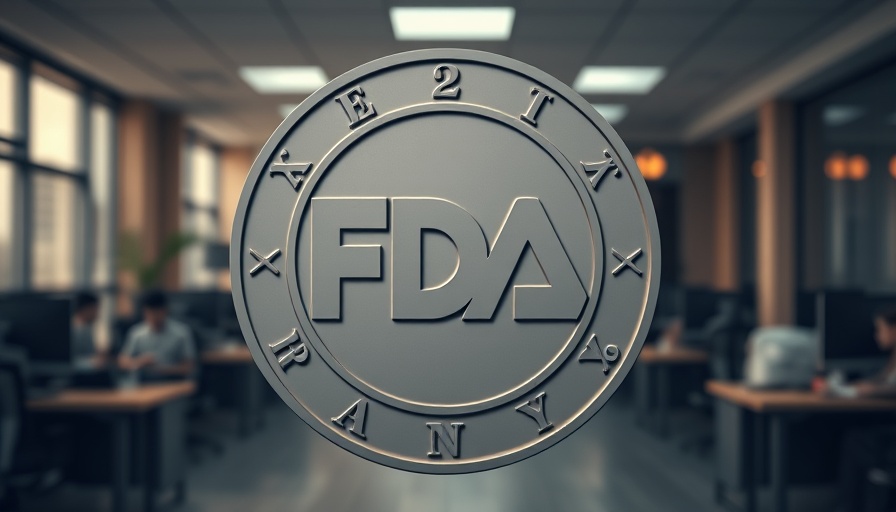
The Reinstatement of FOIA Staff: A Critical Decision for Transparency
The recent decision by the FDA to reinstate some Freedom of Information Act (FOIA) staff marks a crucial turning point in public access to government records. After a slew of layoffs designed to reduce the Health and Human Services (HHS) workforce by 20,000, the reinstatement of key personnel responsible for processing FOIA requests highlights the intricate balance officials must maintain between efficiency and accountability. This shift occurred as it became glaringly obvious that the reduction of FOIA staff was hampering essential operations across various critical FDA functions, including the monitoring of medical devices and tobacco regulation.
Historical Context and Background of FOIA
FOIA was enacted in 1966, serving as a pivotal mechanism through which journalists, businesses, and the general public can access critical government documents. The act is integral to transparency and allows citizens to hold their government accountable. The stark reality of losing FOIA staff posed a threat to this law's utility, implying more secrecy and less accountability during a time when transparency is paramount in health issues, particularly with ongoing discussions around vaccinations and medical safety.
Impacts of Staff Layoffs on FOIA Operations
Prior to the reinstatement, employees noted that the mass layoffs severely disrupted FDA operations. With the bulk of FOIA staff removed, the handling of requests related to court-ordered deadlines fell by the wayside, leaving courts without documents they mandated. As a result, essential processes for ensuring public safety and adherence to legal obligations suffered a significant setback. This chaos sharply contrasted with the recommendations of advocates for increased transparency and disclosed critical information about health and safety.
Future Predictions: The Importance of FOIA in a Tech-Driven Era
Looking ahead, the reinstatement of FOIA staff signals an evolving understanding among government officials about the role of transparency in a tech-driven world. As industries increasingly integrate health tech innovations, the accessibility of information regarding these developments becomes vital. In an age where misinformation can spread rapidly, proactive transparency can foster trust in public health initiatives, ultimately benefiting businesses and consumers alike. Failure to maintain FOIA staff would lead to diminished discourse surrounding critical innovations in health and wellness.
Counterarguments: The Need for Streamlined Government Operations
While reinstating FOIA staff reflects a commitment to transparency, some argue that maintaining a large workforce could hinder government efficiency. There could be perspectives advocating for a more streamlined approach that utilizes technology to manage FOIA requests instead. Automation and digital tools present opportunities to improve speed and effectiveness in processing requests, which raises questions about the optimal balance between technology use and adequate staffing.
Decisions You Can Make With This Information
CEOs and marketing managers stand at the frontier of crisis response and strategic management as they navigate the implications of government transparency on their operations. Understanding the dynamics of FOIA's role allows business leaders to approach compliance, stakeholder communications, and public relations with greater foresight. Engaging with this issue enables businesses to not only comply with regulations but also establish themselves as advocates for transparency, enhancing their reputations among consumers increasingly demanding accountability.
Actionable Insights to Navigate the Landscape
As industry professionals concerned with the intersection of technology and wellness, it's essential to stay informed about government actions impacting transparency. Develop thorough mechanisms for tracking government regulations, and foster partnerships with advocacy groups pushing for transparency. Engaging knowledgeable consultants can also provide businesses with targeted strategies to navigate regulations effectively while enhancing their brand’s image as a proactive participant in the conversation surrounding public accountability.
Conclusion: The Ongoing Journey toward Transparency
The reinstatement of selected FOIA staff at the FDA is more than just a bureaucratic decision; it is a vital reinvestment in the infrastructure that supports public health and safety. The ongoing commitment to maintaining a transparent government remains crucial as we navigate an era of rapid technological advancement in health and wellness. It reinforces the idea that transparency leads to accountability and fosters trust—key elements for businesses and the public alike. Therefore, as industry leaders, staying engaged with these developments is imperative for crafting informed strategies amid shifting dynamics in health-related documentation and disclosures.
 Add Row
Add Row  Add
Add 




Write A Comment